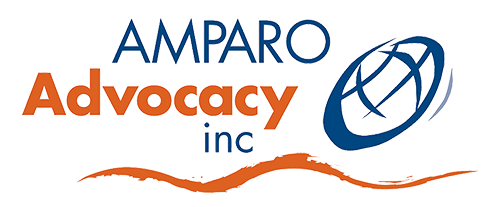AMPARO Advocacy has produced three fact sheets to provide information about working with interpreters and developing cultural competence.
Australia has a rich cultural diversity, and according to the 2021 Census, 29.1% of Australians were born in almost 200 different countries and speak more than 300 languages. However, this diversity needs to be reflected in rates of service use. These rates are far lower than the national rate. AMPARO has observed that when services do not have culturally inclusive practices, people from CALD backgrounds with disabilities:
• May not know what supports and services are available
• Miss out on essential services or receive inappropriate or inadequate levels of support
• Suffer long-term impacts on their health and well-being and ability to participate in community
Australia has witnessed lower and decreasing economic participation by people with disability and their carers generally.
"Rates of service use for people from a NESB with disability are only 11.7%, less than half of that of the national rate of 34.9%. These inequalities are even more acutely experienced by people with disability who are Indigenous or who were born in non-English speaking countries."
Cultural competence offers a framework to improve service delivery to people from a CALD background. This framework enables you to assess and improve every aspect of your organisation, from management and governance structures to service delivery and staff development. It will help ensure all clients receive high-quality and culturally appropriate service.
Culturally competent agencies:
- Broaden their knowledge and understanding of the cultural and linguistic needs of individuals and communities they assist
- Learn about and integrate unique cultural abilities and perspectives into daily operations
- Identify and address the issues facing organisations and staff that have cultural implications
- Can bring this knowledge into the routine functioning and operations of the agency.
Human service organisations recognise the need to enhance the support provided to people from culturally and linguistically (CALD) diverse backgrounds with disability. The Australian Bureau of Statistics data shows that 12.1% of Queenslanders with disability speak a language other than English at home. However, only 2.6% have been accessing disability services in Queensland.
Self-Assessment can lead to the development of the following:
- A service system that is responsive to the needs of people from CALD backgrounds with a disability can deliver equitable outcomes for them regardless of their cultural and linguistic backgrounds.
- A strategic organisational plan with clearly defined short-term and long-term goals
- Measurable objectives
- Identified fiscal and personnel resources
- Enhanced participation by people with disability and community partnerships
Self-assessment can also provide a vehicle to measure outcomes for personnel, organisations, population groups and the community. Self-assessment is an ongoing process, not a one-time occurrence. It allows organisations and their personnel to assess individual and collective progress over time.
Good communication is critical to effectively providing information, support and services. Organisations have a duty of care to ensure their clients have equitable access to information and can make informed choices and decisions. Communicating effectively through an interpreter will facilitate this for people with difficulties communicating in English. Agencies should develop clear policies to guide how their staff will deliver language services.
It is good practice to offer all persons who may have difficulty speaking or understanding English the option of using a qualified interpreter. Otherwise, they may not realise that they have the right to an interpreter and may try to manage without one, potentially creating communication difficulties.
Likewise, it is good practice to offer people who are deaf access to an Auslan (Australian sign language) interpreter.

